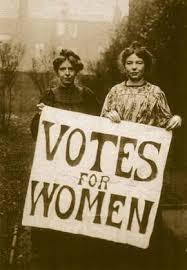

This is essential radical feminist reading but also a really good example of how we have to look at second wave texts critically instead of treating them as gospel.

I think about this book practically every time my feet hurt from walking around in heels. It seems too richly ironic/annoying that Dworkin was dismissed by many critics in a way her book could have predicted: She's too crazy! Too angry! And look at how she dresses! Was she the first person to observe what we all pretty much accept as true, and was it really only in the past 30 years we acknowledged it? Men needed women to fuck and make children, and a system was in place to keep them in their place, and it grew exponentially (fairy tales lead to actual witch trials, etc).Īnd it is remarkable to me that no one would really *argue* with that thesis, which makes me wonder why this book was so controversial when it was released. It's hard to argue with her thesis: Western and Eastern civilization and culture, as a matter of course, operated on the degradation and villainization of women, from fairy tales to marrying off your daughters for money to impossible demands for beauty. What first struck me while reading this was the realization that, despite what most people say about her, Andrea Dworkin was not "crazy" while writing it. I'm going to put this one on my "books to re-read" list so find out what it looks like from the perspective of a woman nearing later middle age. The only logical response to it was to set all girlish romantic illusions aside, recognize the world for what it was, and set forth relying upon one's self, seeking a path that would not require any sort of intercourse with anti-woman forces. Woman Hating was the perfect book for a young woman to read immediately before setting off into the world from college. Though I had read Millett, Freidan, de Beauvoir, Solanas, Morgan, Brownmiller, and many others during the early seventies, the force of Dworkin's arguments reached me in a way that theirs didn't, perhaps because it was not written in an academic way, nor did it rely upon the reader recognizing herself as a housewife, mother, or middle aged. She tied together history and culture to expose patriarchy as a negative anti-life power dedicated to its own perpetuation. In particular, Dworkin's description of global woman hating cultural practices such as foot binding and witch hunting made a vivid impression upon me. At the age of 22, decades ago, I read this book, and was amazed.


 0 kommentar(er)
0 kommentar(er)
